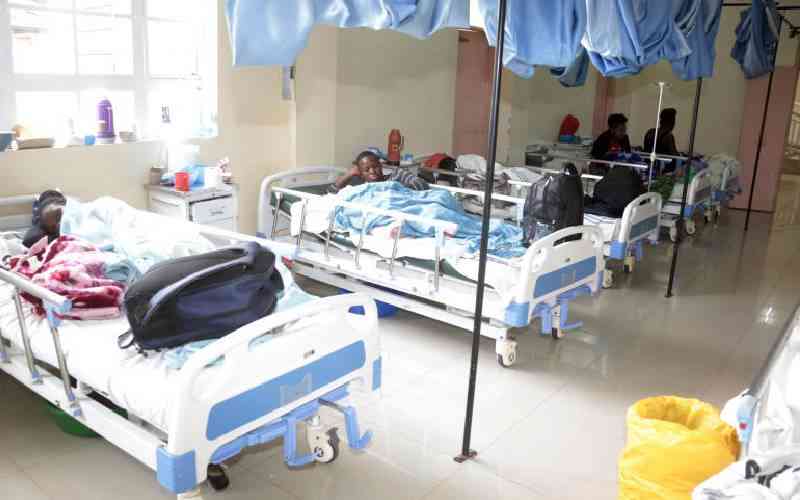
In the ever-evolving landscape of healthcare, one thing remains constant: The centrality of our communities. At the heart of Kenya's healthcare delivery system, the establishment of Primary Care Networks, (PCNs) marks a monumental shift in our approach to healthcare. These networks are not merely an administrative change, they represent a visionary transformation that embraces the principals of preventive and promotive healthcare.
PCNs play a pivotal role in weaving the intricate threads of our healthcare system. They are instrumental in integrating care across all levels, making our healthcare delivery more efficient and accessible. But their impact goes beyond logistics. PCNs embody inclusivity, ensuring that every individual, regardless of their circumstances has access to quality healthcare. They establish a robust emergency referral system, a lifeline in times of crises.
Collaboration is the cornerstone of PCNs. They facilitate the sharing of resources among different levels of care, enabling a more equitable distribution of critical resources. Moreover, PCNs are data-driven, ensuring that decisions are not just timely but also well-informed.
This strategic shift aligns perfectly with the four pillars of Universal Health Coverage (UHC); human resource for health, digital health, commodity security and health care financing. It embodies a strategic manoeuvre aimed at lightening the burden of disease and enhancing the overall well-being of every Kenyan. PCNs, by offering an efficient, integrated and affordable healthcare system, are heralding a new era of healthcare delivery.
The forthcoming Mashujaa Day celebration in Kericho themed 'Universal Health Coverage', will serve as a platform to launch Smart Primary Care Networks. This is a testament of the government's commitment to the Bottom-up Economic Transformation Agenda on health, with a steadfast focus on 'Afya Bora Mashinani' - better healthcare at the grassroots.
Our journey towards accessible, available, affordable and acceptable quality healthcare has seen remarkable progress. Recruitment of 100,000 community health promoters and comprehensive assessment of over 14,000 healthcare facilities form the bedrock of data-driven approach. This approach underpins evidence-based policy formulation, meticulous planning, and thoughtful healthcare programming, all geared towards achieving UHC.
Through partnership with county governments and development Partners for Health Kenya, significant strides are being made to operationalise all 315 Primary Care networks across the country. Two counties; Kisumu and Garissa, are leading the way, but more counties will follow suit.
To fortify these efforts, the Health ministry has nurtured a team of trainers of trainers, to steer the digital development of model PCNs in all 47 counties. Their mission is to strengthen the healthcare system and expand primary care, creating a more resilient healthcare infrastructure.
- UHC workers threaten strike, demand permanent terms and gratuity
- Kenya steps up health investments to safeguard mothers and children
- Kenyans in diaspora to get health cover
- Health Ministry and Treasury seek collaboration to fast-track UHC implementation
Keep Reading
In addition, efforts are also underway to expand Community Health Units to reach a target of 9,100 units. These CHUs serve as the frontline of healthcare delivery, ensuring that quality care is within reach of every Kenyan.
Ms Muriuki is PS, State Department for Public Health and Professional Standards
 The Standard Group Plc is a multi-media organization with investments in media
platforms spanning newspaper print
operations, television, radio broadcasting, digital and online services. The
Standard Group is recognized as a
leading multi-media house in Kenya with a key influence in matters of national
and international interest.
The Standard Group Plc is a multi-media organization with investments in media
platforms spanning newspaper print
operations, television, radio broadcasting, digital and online services. The
Standard Group is recognized as a
leading multi-media house in Kenya with a key influence in matters of national
and international interest.




